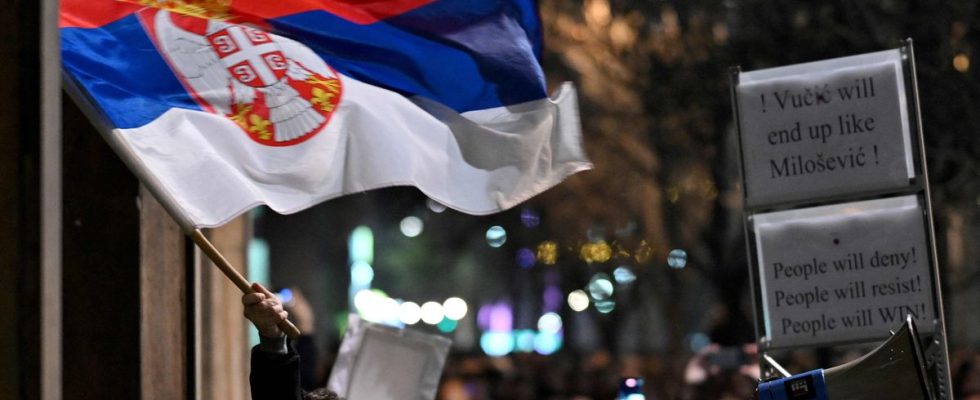You may not have known it, but early legislative elections were being held this weekend in Serbia, a country that has been a candidate for membership of the European Union since 2012. Without too much surprise, it was the nationalist and pro-Russian party of President Aleksandar Vucic which won the election with almost 47% of the votes. But its results are contested by the opposition which accuses the presidential party of having cheated and calls for mobilization this Tuesday evening. 20 minutes takes stock of the political situation in Serbia.
What do the election results say?
The results will only be final in a few days. However, on Monday evening, the electoral commission announced that the presidential party of Aleksandar Vucic had won the legislative elections held on Sunday in Serbia. According to “preliminary results”, the Serbian Progressive Party, the SNS, came out on top with 46.7% of the votes, ahead of the opposition united under the banner “Serbia Against Violence” (SPN) which won. 23.5% of the votes. In Belgrade, the capital, where a local vote was also held, the local commission gave the SNS the winner with 44.5% of the votes, followed by the SPN which totaled 38.18% of the votes.
Why is the opposition contesting the results?
Ballot box stuffing, vote buying… According to several international observers, Sunday’s vote in Serbia was marred by numerous irregularities throughout the country. “It was a theft. I’m disgusted, it’s something that’s repetitive. I’m just disgusted. I want that to change,” explained Ana Mirkovic, 37, who came to protest Monday evening in front of the electoral commission building in Belgrade.
The opposition is also maintaining the pressure and is once again calling for mobilization this Tuesday evening to contest the results. “We invite all opposition parties and movements, citizens, civil society, to join us,” said Miroslav Aleksic, one of the leaders of the Serbia Against Violence coalition. The SPN also asked to be invited “live” to the news on Serbian national television (RTS), accusing the channel of not having covered the demonstrations and allegations of fraud. “Two thirds of Serbian citizens know nothing at all about what is happening,” lamented Marinika Tepic, another coalition official.
What are the international reactions?
After the victory of the ruling pro-Russian nationalist party, the Kremlin was of course quick to congratulate President Aleksandar Vucic. “We hope that the trajectory of strengthening friendship and our cooperation will continue,” said Dmitry Peskov, spokesperson for Vladimir Putin, speaking of Serbia as a “friendly” and “fraternal” country. » Elsewhere, reactions are of course different, notably in Germany. “Serbia voted but the OSCE reported cases of fraudulent use of public funds, intimidation of voters and vote buying,” denounced the German Foreign Ministry. This is unacceptable for a country which has EU candidate status. »
The European Union also reacted on Tuesday and estimated that the electoral process in Serbia required “tangible improvement and additional reforms. » The European Parliament stands ready to act as a mediator between the ruling party and the opposition in Belgrade, said German MEP Viola von Cramon (Greens), who was part of the observer team. elections in Serbia on Sunday.

